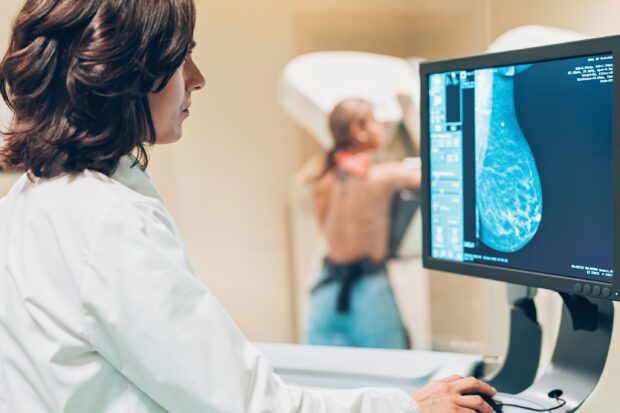AI is a new source of hope in the fight against cancer

The earlier cancer is detected, the better the chances of recovery, and the less onerous the treatment. This is why screening is so important, whenever possible, although many of the programs put in place are struggling to gain momentum. But artificial intelligence could change the game, according to a study conducted by UK-based researchers. Indeed, through training, the technology could be able to detect the disease at an early stage.
With some 20 million cases and 9.7 million deaths in 2022, cancer is one of the world’s leading causes of death. And the situation looks set to worsen over the coming years, and decades, according to projections by the World Health Organization (WHO). The global health authority estimates that more than 35 million new cases could be seen in 2050, an increase of 77% compared to the estimated number of cases in 2022.
While prevention remains the key to limiting risk factors — notably smoking, alcohol consumption, sedentary lifestyles, diet and pollution — scientists are also doing their utmost to advance research in terms of treatment and early diagnosis. And artificial intelligence (AI) could help improve the latter.
This is the conclusion of a paper published by Oxford University Press in the journal Biology Methods & Protocols, highlighting recent work by researchers at Cambridge University and Imperial College London. They trained artificial intelligence to examine DNA methylation patterns and identify 13 types of cancer — including breast, liver, lung and prostate cancer — from non-cancerous tissue. This was achieved with an accuracy of 98.2%. Being able to identify unusual DNA methylation patterns — which, as the researchers themselves put it, “is like searching for a needle in a haystack” — would enable these forms of cancer to be detected at an early stage, thereby increasing the chances of recovery.
“Computational methods such as this model, through better training on more varied data and rigorous testing in the clinic, will eventually provide AI models that can help doctors with early detection and screening of cancers. This will provide better patient outcomes,” says the paper’s lead author, Shamith Samarajiwa, quoted in a news release.
The scientists point out, however, that, at this stage, the model is based on tissue samples, and that further research — and AI training and testing — is needed on a more diverse collection of biopsy samples before clinical use would be feasible.
How AI could help doctors
This is not the first time that researchers have considered artificial intelligence as a source of hope in treating cancer and improving patient survival. In 2021, researchers at France’s Institut Curie developed a deep learning artificial intelligence tool that could “sequence all genes expressed in a tumor.” Tested on 48 tumors, the algorithm was able to detect 79% of them, the aim in this case being to diagnose cancers of unknown origin, ie, cancers that are discovered only once they have metastasized, and which are therefore already relatively advanced.
In the same year, the EU’s PANCAIM project led to the development of an artificial intelligence algorithm capable of earlier detection of cases of pancreatic cancer that had previously eluded imaging techniques. More recently, in August 2023, Swedish researchers shared the findings of a study published in The Lancet Oncology, demonstrating that artificial intelligence was capable of helping radiologists detect breast cancer.
All these advances testify to researchers’ interest in using artificial intelligence to fight cancer, by improving early diagnosis and treatment, and by extension, patient survival. However, AI is not intended to replace healthcare professionals. Instead, it should support them, enabling patients to get the most appropriate treatment as quickly as possible.